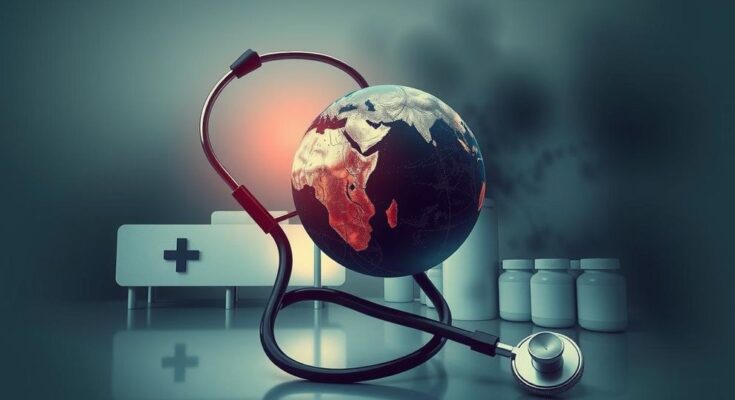Funding cuts by the U.S. government for HIV/AIDS programs in Africa, notably in South Africa, threaten to increase the death toll significantly. Experts warn that 500,000 deaths could occur within ten years as access to crucial health services diminishes. The cessation of support, especially for UNAIDS and local health organizations, exacerbates the ongoing HIV crisis, necessitating urgent solutions.
The looming cuts in U.S. funding for HIV/AIDS programs across Africa could drastically increase mortality rates, as health experts warn of potential deaths reaching hundreds of thousands. Notably, in South Africa, it is estimated that the cessation of funds could result in approximately 500,000 deaths over the next decade. This alarming forecast is attributed to reduced access to essential healthcare services, including HIV prevention and treatment.
Since taking office, President Donald Trump has instituted significant cuts to foreign aid agencies, including the U.S. Agency for International Development (USAID). The recent decision to halt funding for programs like the United Nations’ HIV/AIDS initiative, UNAIDS, further exacerbates the crisis. A UNAIDS report indicated that 55 nations, many in Africa, have experienced reductions in their HIV funding, disrupting crucial health services.
The extensive impact of these funding cuts is already being felt. Reports detail closures of numerous HIV clinics in South Africa, forcing patients to seek care in overcrowded facilities. As per health officials, more than 222,000 people living with HIV are at risk of losing critical antiretroviral therapy due to funding reallocations incompatible with U.S. objectives.
Additionally, the U.S. once provided substantial support, facilitating access to treatments for about 5.5 million South Africans yearly. The reliance on American aid is underscored by the fact that 17 out of the 20 countries most dependent on U.S. funding for HIV programs are located in Africa.
With many NGOs scaling back or ceasing their operations, the urgency for alternative funding sources has increased. South African leaders have committed to bolstering their health system despite the funding crisis, with President Cyril Ramaphosa emphasizing local solutions to maintain essential health services. Furthermore, nations such as Nigeria are beginning to mobilize funds in response to the impending crisis.
In summary, the cuts to U.S. funding for HIV/AIDS programs could result in significant health challenges in Africa, particularly in South Africa. The potential for hundreds of thousands of deaths underscores the critical importance of these programs in combating the HIV epidemic. As nations seek to address this funding void, the global community must consider alternative funding sources to support affected populations adequately.
Original Source: www.aljazeera.com




